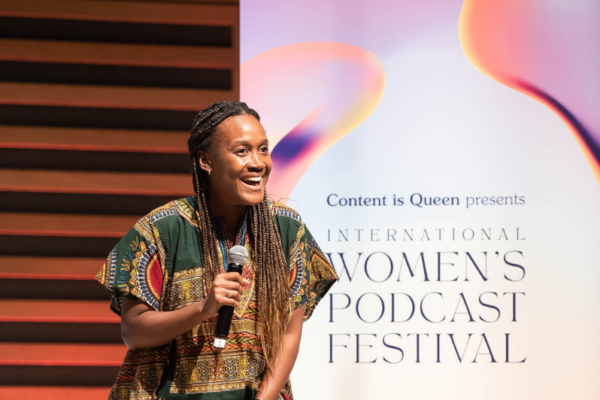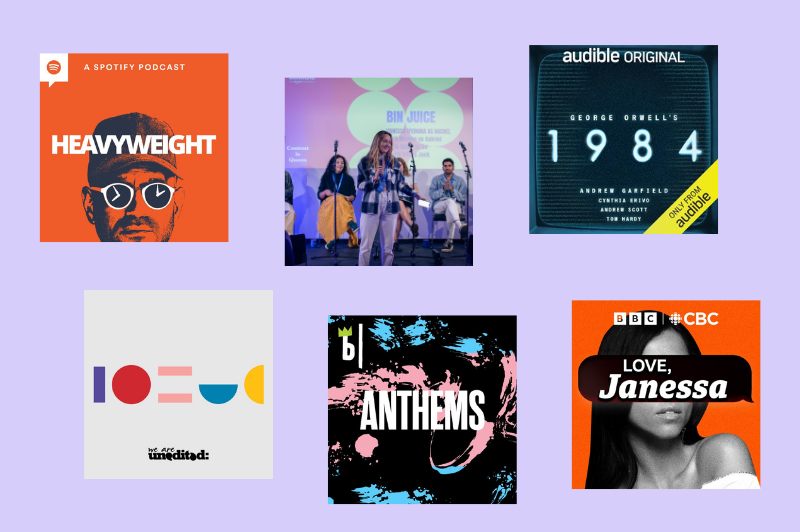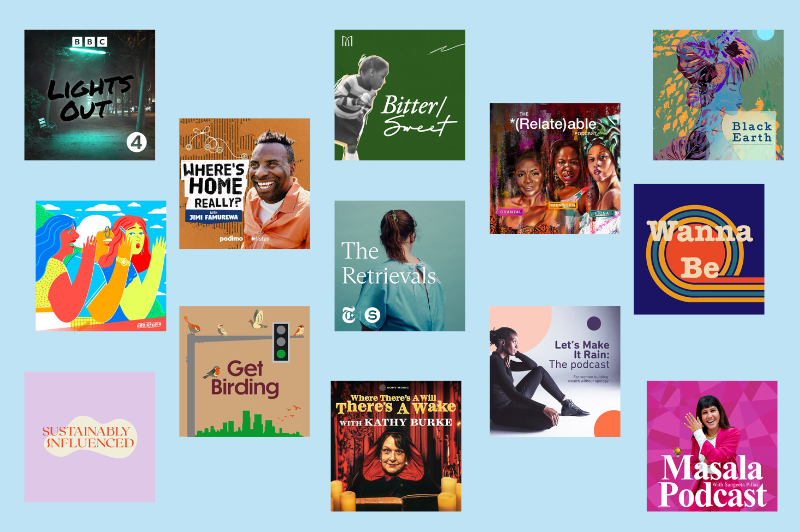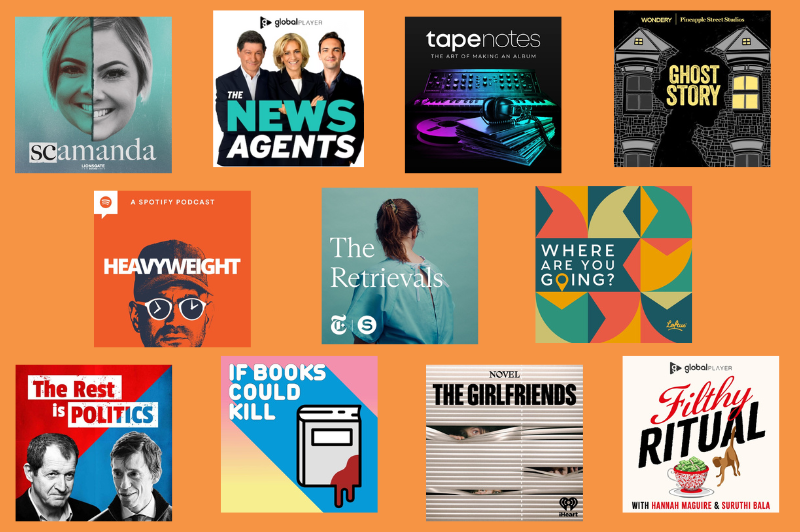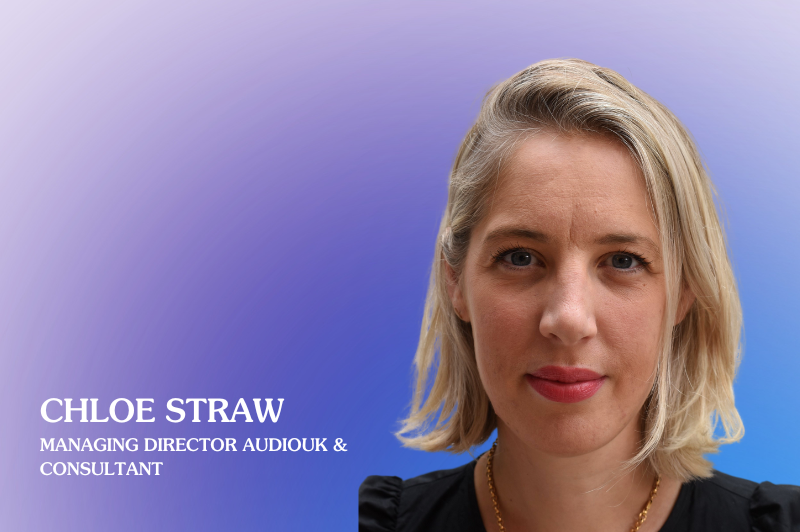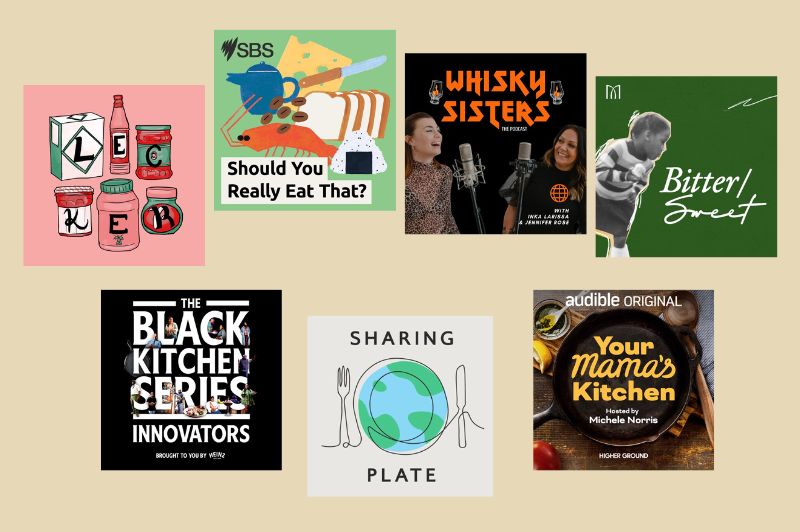Do you want to be a speaker at podcast events and conferences? With The International Women’s Podcast Festival 2024 applications open from now until 13th March, we asked Kat Molesworth for some tips to make your speaker pitch successful.
When you’re pitching to speak at any event, you want your pitch to sparkle and catch the eyes of the conference organisers. We’re looking for a range of different ideas and skills to include in the International Women’s Podcast Festival (IWPF) line-up, and we have an open pitch policy so that we can book the best speakers for sessions. Here is the advice I would give if you want to be one of them.
Actually submit!
This first point should go without saying – if you aren’t sending pitches then it’s less likely that you will be asked to speak. We do reach out and invite people to talk, but the majority of our lineup comes from the pitches. The only sure fire way to get us to consider your chosen session is to pitch it. It’s way more effective than wishing and hoping.
And submit early…
Get in early with a strong pitch and you increase the odds of standing out from the crowd. Pitches may be open for six weeks but we start analysing their suitability as soon as they begin to arrive. For the last festival, we got more pitches on the final day than any other day. The pitches that start with “I saw it was the last day so I thought I’d throw something together…” do not go down well.
Equally, pitches submitted months after the process is closed are futile. You might try to chance your arm by pitching a day or two late, but like many organisations, we will already have more applications than they have slots. If we’ve just sent out a Final Speaker Announcement, we’re not going to consider you this year – and will likely forget you by the next pitching window.
Follow the instructions
Read the introduction, read the instructions and read the FAQs before writing your pitch – and then read them again before submitting. Working with a large number of people to bring an event together, we really appreciate the people who follow instructions when pitching. This is our first indicator of whether you are going to be wonderful to work with. If you hit every point we ask for and help us understand what our audience will take away from your session, we’re really happy.
Research the event
Make sure you understand the event you are pitching to, as well as the audience that attends. Find out who has spoken before, what kind of sessions they held and what the audience enjoyed in previous years. Events are unlikely to repeat large parts of content from the last programme.
With a knowledge of the type of session the organiser is looking for you can avoid pitching out of their interest zone. Our decisions will be driven by what benefits people in their careers as professional and indie podcasters. For instance, it’s unlikely IWPF would host a talk focussed on the history of your podcast, but we might be interested in specific insights or advice you have for newer podcasters. How can you take your knowledge and make it relevant for this event?
Be fresh and original
What do podcasters need in 2024? What has moved on since we last gathered? What new landscapes are emerging in podcasting? What advice did you need to hear in your early or mid career? People are coming to your session to learn things that they are unlikely to have heard before. The question to answer in most cases is not “what it is” or “why you should do it” but how to do something. Think about how to overcome the challenges you see in the industry right now, or ways we can use new technologies.
Originality is also important in what you present. If you care about speaking at an event known for originality don’t re-use a talk you’ve given elsewhere. Events want to be able to say they’ve got something unique from you. Give people something that has never been heard before and is going to be a one-off for this event.
Sell yourself
It may feel awkward (especially if you’re from the UK) but you need to embrace the fear and tell me why I should pick you. Why are you the only person that could do this talk?
Give me reasons to rave about you to people. We don’t need your CV – it doesn’t matter if you dropped out of Uni or have an armful of PhDs (unless it’s particularly relevant to your session). But do tell us what you have achieved in podcasting and audio. How did you build your pod / following / career / business to the point it’s at now? How do you support people? What are you doing that’s special?
When we are considering who might be the right fit for a session or panel we may have several people to choose between. If you stand out not just for your pitch but as a superb individual, the odds are in your favour.
But it’s not about you
There is very little that will turn an audience more quickly than being focused on pushing your agenda rather than their needs. People have invested their time and money, and they should come away with actionable advice that can be applied to their work or project tomorrow.
Speaking at events is a great way to build your profile and strengthen links, but if that’s your sole aim, I suggest you attend the festival and work the room instead. At IWPF we work to create an event packed with value for our attendees. Channel this into your pitch – tell me exactly how your session adds value to the schedule. Talking about your journey or the things I could read on your ‘about me’ page probably won’t achieve that objective. Focus on delivering exceptionally good advice, and you’ll find that people will flock to you because of it.
Stay connected if you’re not picked
You might be turned down as a speaker this time. This may be no reflection on you or the quality of your work but simply based on the confines of time and schedule. If it happens, stay connected.
People we chat to on social media, who share what we’re doing and contribute to the community, stand out (and conversely, so do those who don’t). You never know what will happen last minute – in the past we’ve had a speaker unable to make it with little notice. By submitting your pitch you are on my radar. Come and say hello to me at the event as well, because there is nothing like connecting in person to solidify that.
Be ready to say ‘yes’
You already know CiQ love speakers who are organised so here are a few quick tips you can get ready for when we’re booking people:
Plan out your session: At CiQ we always meet with our shortlist to get a sample of the proposed workshop or talk so having your main points planned out and ready will stand you in good stead to be booked. You don’t need to create a presentation or have every last detail written out but you do need the main sections of your session clear so our content team have a good understanding of what you’re planning.
Get your bio prepped: Tailor your bio to the event audience. This is great for two reasons: number one it tells the audience why you’re a great fit for them. Number two it means that your speaker page on the site will be different to other places your bio appears and so won’t get penalised by search engines for repetition.
Get your photos ready: Love or hate your own photos, every event you speak at is going to want one on their site. We highly recommend investing in a professional shoot to provide high resolution images that reflect the standard of your work. Make sure you have at least one photo that doesn’t crop your head or hair. Having a mix of very corporate to more relaxed imagery is good because events will be looking for different things. It also helps your brand stay fresh: if people attend lots of industry events and you have had the same profile picture for five years it stands out – but not in the good way.
__________________________________________
Pitching to speak at an event can be daunting but by nailing your submission you can stack the odds in your favour. Taking the time to make sure it meets the criteria and adds value to the event will give you the best opportunity.
Every year it is a joy to read well-crafted pitches for sessions we can’t wait to attend. Some of our greatest speakers have pitched us directly rather than waiting for us to notice them. So what are you waiting for? Send us a pitch.



